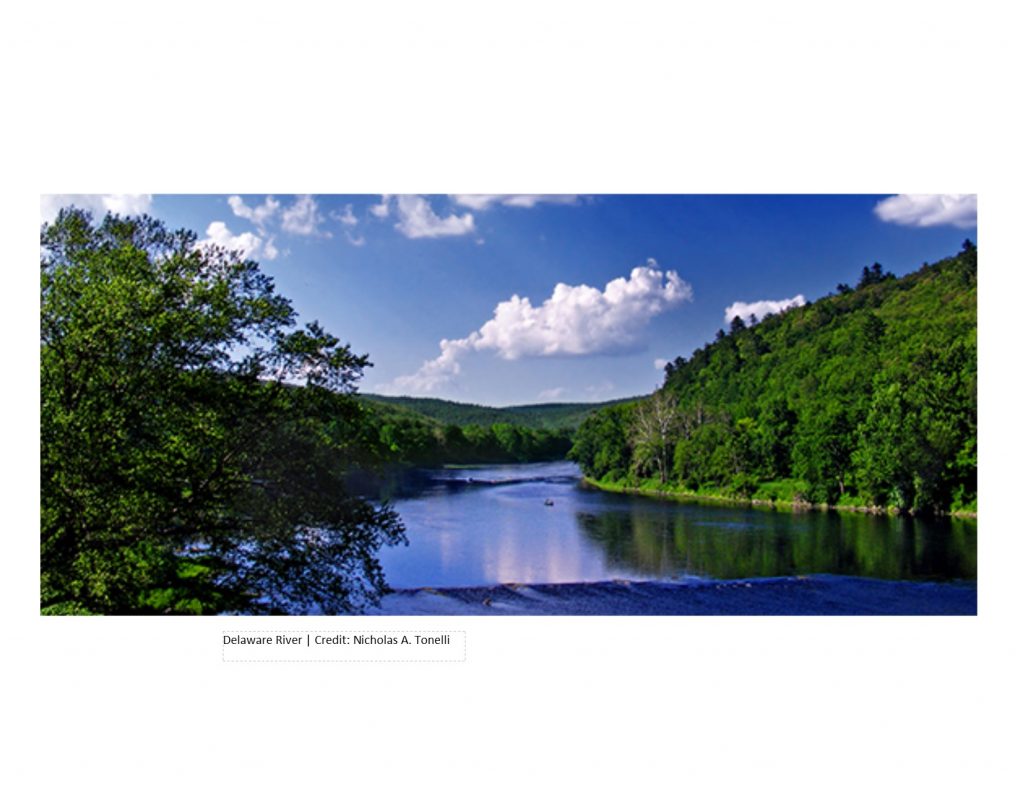The National Fish and Wildlife Foundation’s Delaware River Program is dedicated to restoring the fish and wildlife habitats and water quality of the Delaware River and its tributaries. The Delaware River Program currently awards grants through two competitive funding opportunities. Here is information on one major fund.
The Delaware Watershed Conservation Fund (DWCF) was launched in 2018 to conserve and restore natural areas, corridors and waterways on public and private lands that support native fish, wildlife and plants, and to contribute to the vitality of the communities in the Delaware River watershed. Priority strategies for on-the-ground implementation include sustaining and enhancing fish and wildlife habitat; improving and maintaining water quality for fish, wildlife and people; sustaining and enhancing water management to benefit fish and wildlife; and improving outdoor recreational opportunities within the Delaware River watershed.
The Delaware Watershed Conservation Fund provides grants for on-the-ground restoration and conservation projects designed to improve water quality, fish and wildlife habitat, and improve public access. To date, the program has funded a total to 54 projects totaling $6.1 million. The next opportunity to apply for the DWCF will be announced by the National Fish and Wildlife Foundation in February 2020. Eligible project proposals are funded between $50,000 and $250,000.
Additionally, a 1:1 match is required. More information can be found on the attached DWCF fact sheet or website here. https://www.nfwf.org/delaware/Pages/home.aspx

The Coalition for the Delaware River Watershed may be able to assist with connecting relevant parties to achieve this funding requirement. Please do not hesitate to reach out to Sandra Meola by email (sandra.meola@njaudubon.org) or by phone at (201) 336-4647 for more information on the program or matching assistance.
The National Fish and Wildlife Foundation is dedicated to sustaining, restoring and enhancing the nation’s fish, wildlife, plants and habitats for current and future generations. NFWF will advance its mission through innovative public and private partnerships, and by investing financial resources and intellectual capital into science-based programs designed to address conservation priorities and achieve measurable outcomes.
In the 32 years since being chartered by Congress,NFWF has grown to become the country’s largest conservation grant-maker. NFWF-funded projects — more than 15,000 since its founding in 1984 — have generated a cumulative conservation impact of more than $3.5 billion.
NFWF neither advocates nor litigates. Instead, the Foundation specializes in bringing all parties to the table — individuals, government agencies, non-profit organizations and corporations — to build a better future for our world.
Nature nugget
Hibernation is truly an amazing physiological feat for animal survival. Without this ability, a lot of animals would freeze and die. Bears are the animals most known for hibernating the winter away, but they aren’t the only ones. Take a look at some of the other animals that like to hide out until spring arrives. These are called “true hibernators:” wood frogs, snails, turtles, snakes, bees, groundhogs, hummingbirds, bats, skunks, and ladybugs.
Nature quote

“Porcupine Pat” McKinney is environmental education coordinator for the Schuylkill Conservation District and provides programming for people of all ages with an emphasis on schools, public programming and nature center development. “Porcupine Pat” hails from Marion, Ohio and has a BS with Distinction in Natural Resources – Environmental Interpretation from Ohio State. He is a recipient of the prestigious Sandy Cochran Award for Excellence in Natural Resources Education from the PA Forestry Association, the Schuylkill Pride Award, and the PAEE “Outstanding Environmental Educator Award.”


:max_bytes(150000):strip_icc()/Rachel-Carson-GettyImages-577684051-56ff40ca5f9b5861951c2562.jpg) “Those who contemplate the beauty of the earth find reserves of strength that will endure as long as life lasts.” — Rachel Carson
“Those who contemplate the beauty of the earth find reserves of strength that will endure as long as life lasts.” — Rachel Carson

